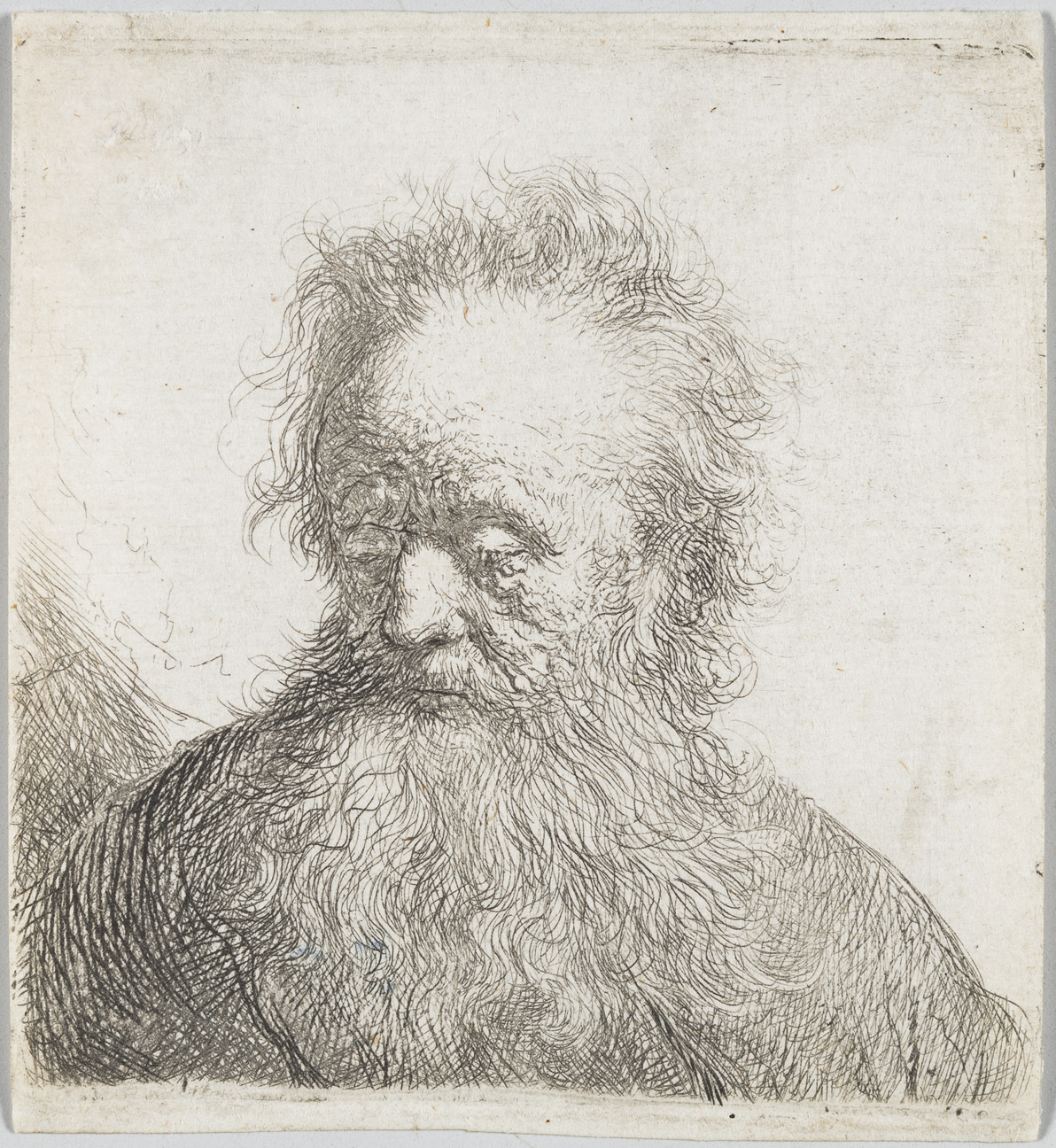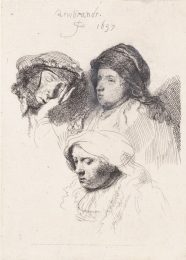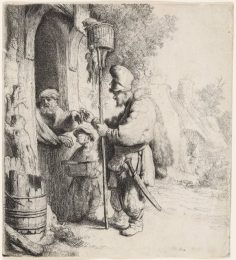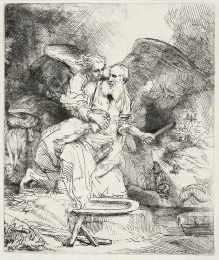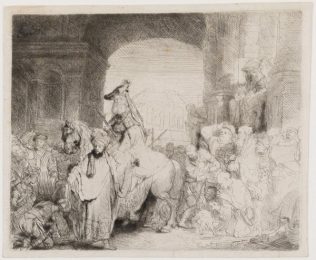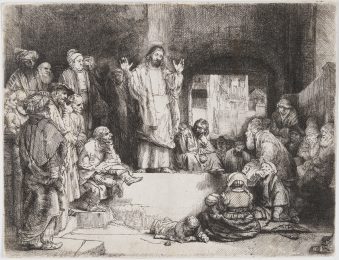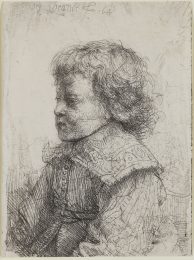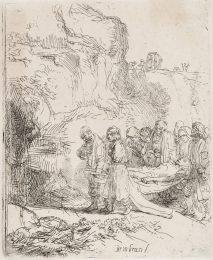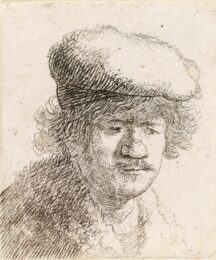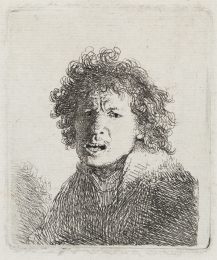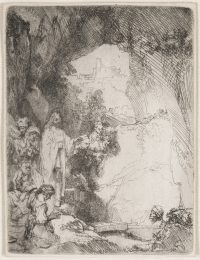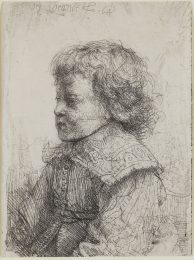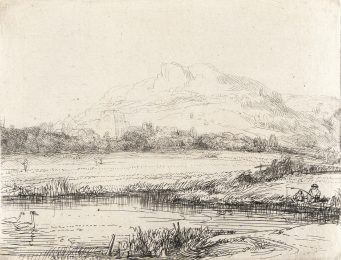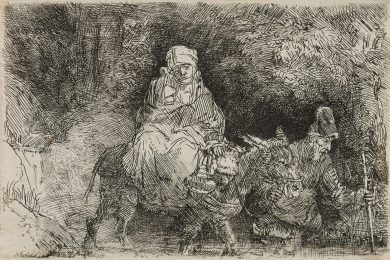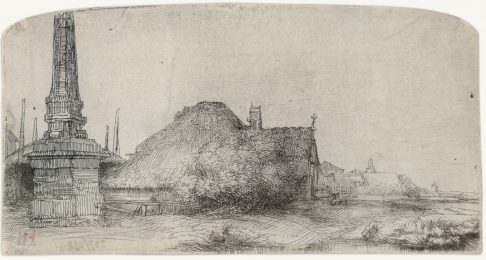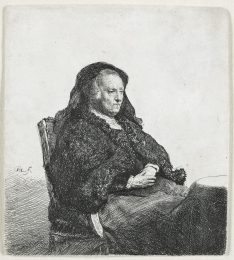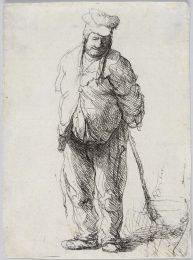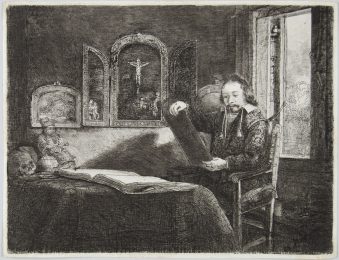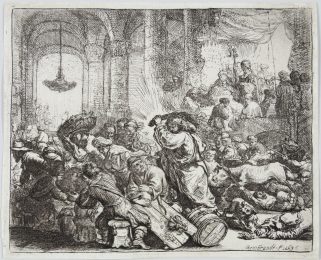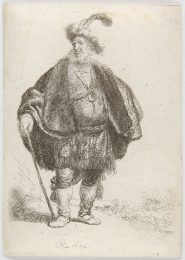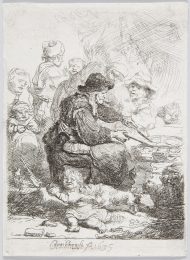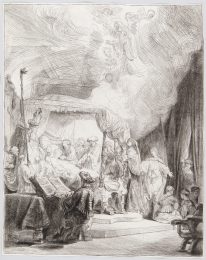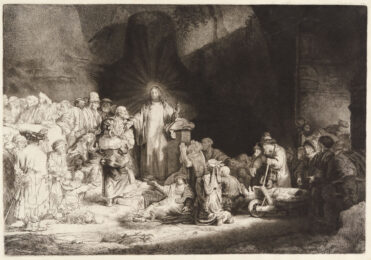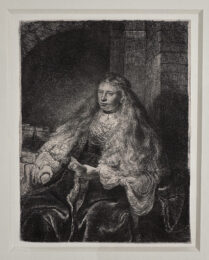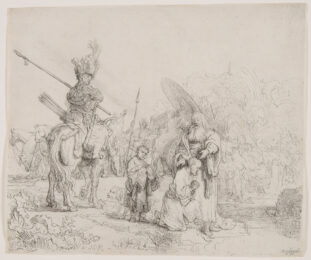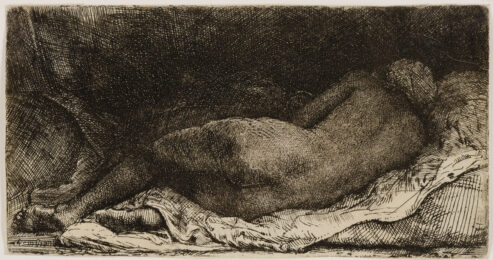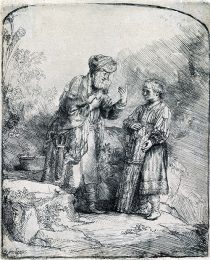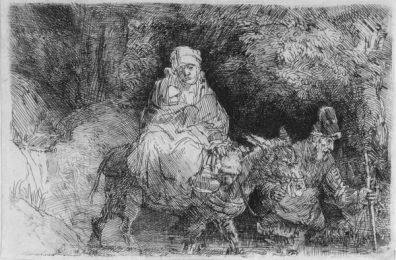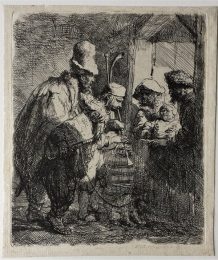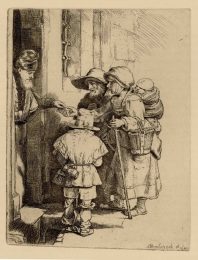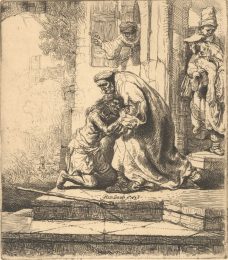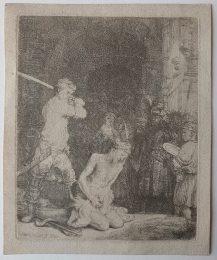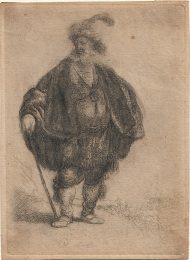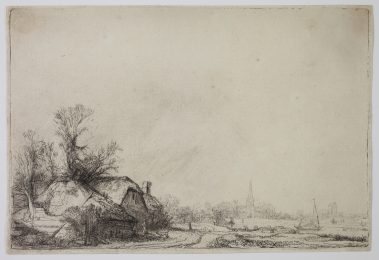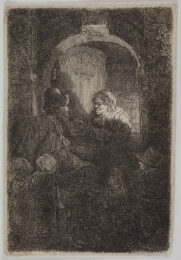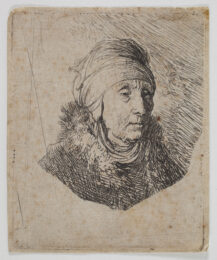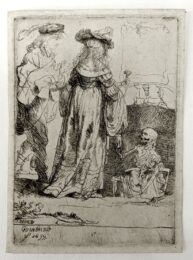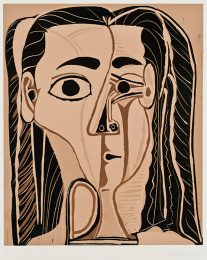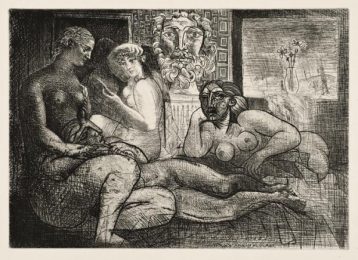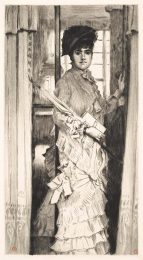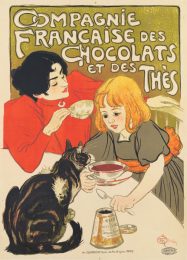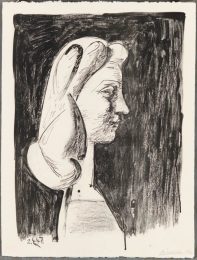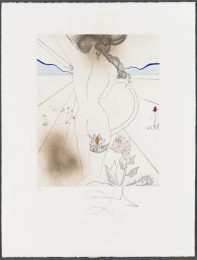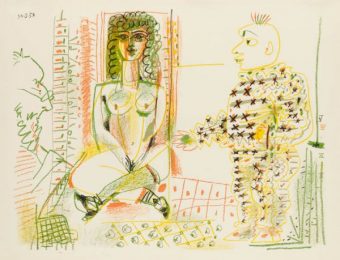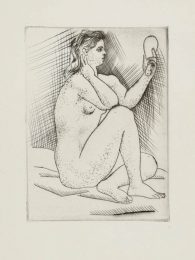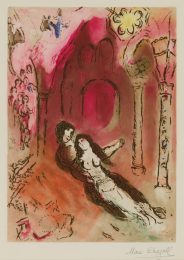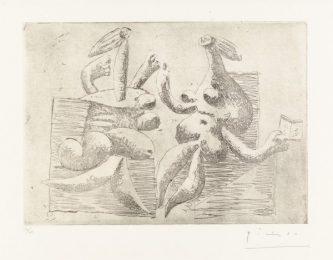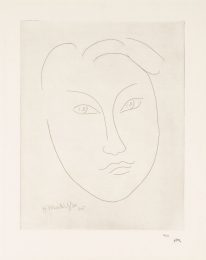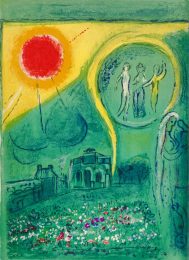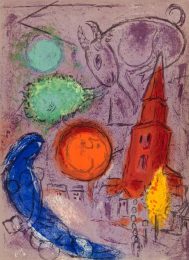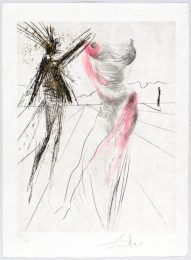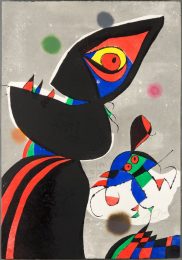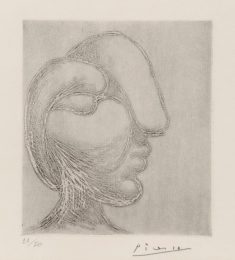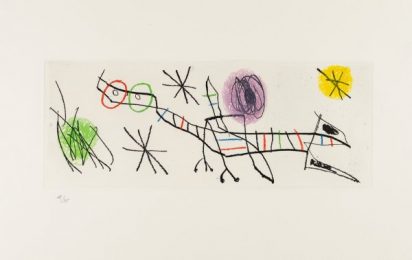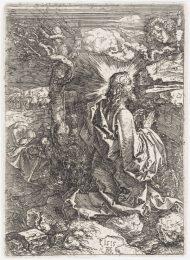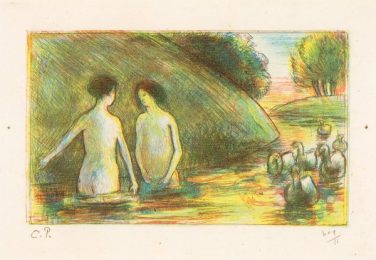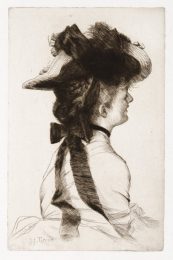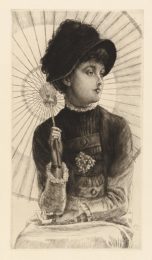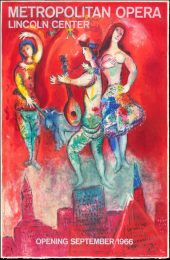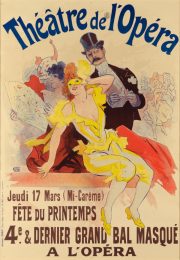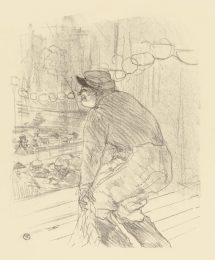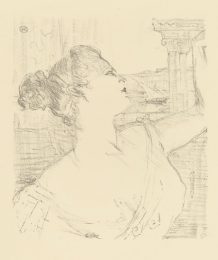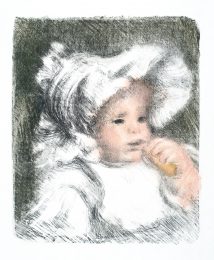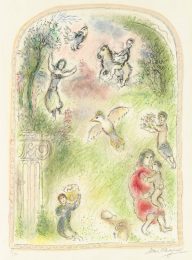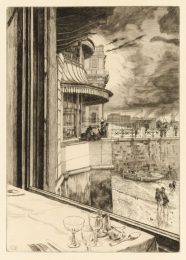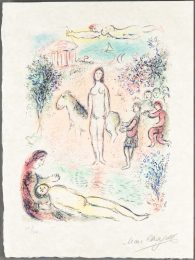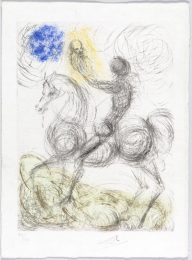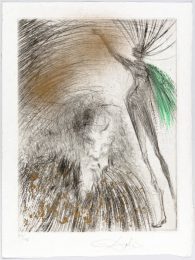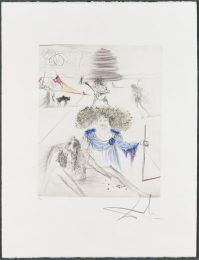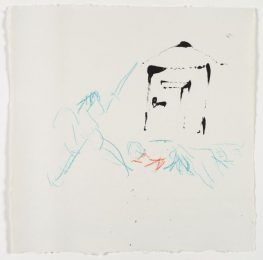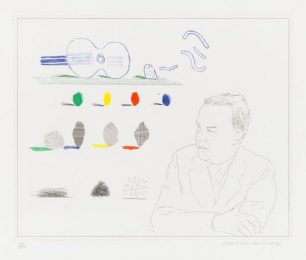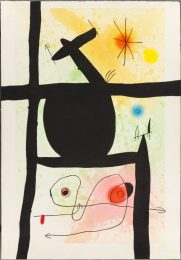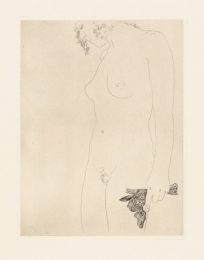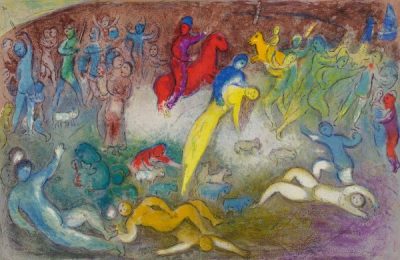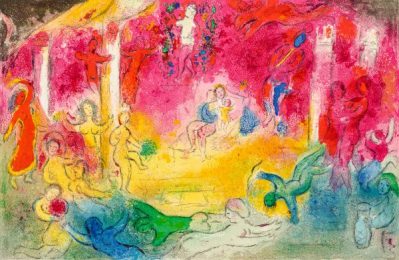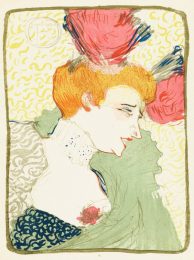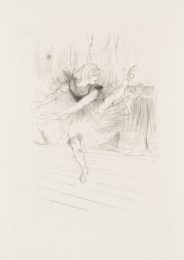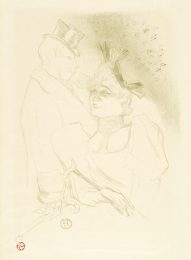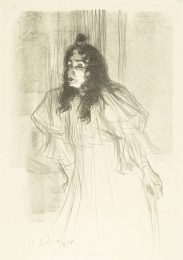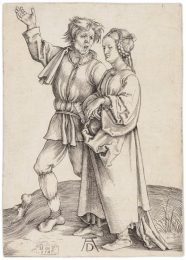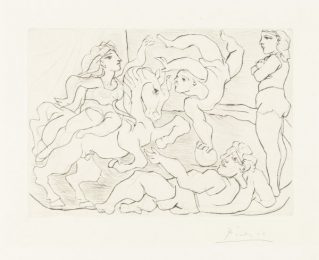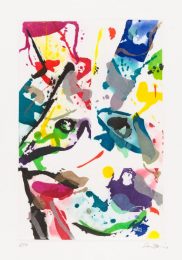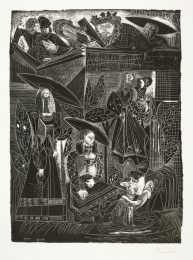Details — Click to read
Original etching printed in black ink on laid paper
Signed with the artist’s monogram and dated in the plate upper left RHL 1631 (extremely faint).
A delicate but superb 17th century/lifetime impression of Bartsch, Usticke and New Hollstein’s second and final state of this rare etching (characterized by G.W. Nowell-Usticke in his 1967 catalogue Rembrandt’s Etchings: States and Values as “a very scarce small plate”, and assigned his scarcity rating of “RR-” [50-75 impressions extant in that year]), printed after the addition of the irregular, scribbled lines above the shadow in the left margin, and the diagonal cross-hatching to the shadow itself.
Catalog: Bartsch 315 ii/ii; Hind 48; Biorklund-Barnard 31-F; Usticke 315 ii/ii; New Hollstein 83 ii/ii.
2 13/16 x 2 9/16 inches
Trimmed down to the platemark at the sides, narrow margins top and bottom, otherwise in excellent condition.
Provenance: ex-collection Samuel Solomonovich Scheikevich (Moscow,1842-Paris, 1908), attorney in both Moscow and Paris and art historian noted for his fine collection of Old Master prints and drawings, bearing his collection stamp [Lugt 2367] in blue ink verso.
Collections in which impressions of this state of this etching can be found: Rijksmuseum, Amsterdam; Kupferstichkabinett der Statliche Museen, Berlin; Kunsthalle, Bremen; Herzog Anton Ulrich Museum, Braunschweig; Cabinet des Estampes, Bibliothéque Royale de Belgique, Brussels; Szépmüvészéti Museum, Budapest Fitzwilliam Museum, Cambridge; Kunstsammlungen des Veste, Coburg; Statens Museum fur Kunst, Copenhagen; Kupferstich-Kabinett der Staatliche Kunstsammlungen, Dresden; Graphische Sammlung des Städel Museums, Frankfurt; Teylers Museum, Haarlem; Hamburger Kunsthalle, Hamburg; The British Museum, London; State Pushkin Museum of Fine Arts, Moscow; Staatliche Graphische Sammlung, Munich; The Metropolitan Museum of Art, New York; Ashmolean Museum, Oxford; Bibliothèque Nationale, Paris; Musée du Petit Palais, Paris; Fondation Custodia, Collection Frits Lugt, Paris; Musée du Louvre, Paris; The State Hermitage Museum, St. Petersburg; Graphische Sammlung Albertina, Vienna.
Portraits occupy an important place in Rembrandt’s oeuvre. Even in his Leiden days he was already making studies of old men and women, for which his own parents would also doubtless have posed. The prints were probably not intended to be substantive works of art but were rather Rembrandt’s way of practicing ways of depicting a range of facial expressions. Between 1633 and 1664 Rembrandt made about twenty portrait etchings. Most of them were not executed for commercial publication as prints or book illustrations, but were private prints made for personal reasons. This etching was probably made from life or from one of the drawings in red chalk that Rembrtandt made of old bearded men between 1630 and 1633.

